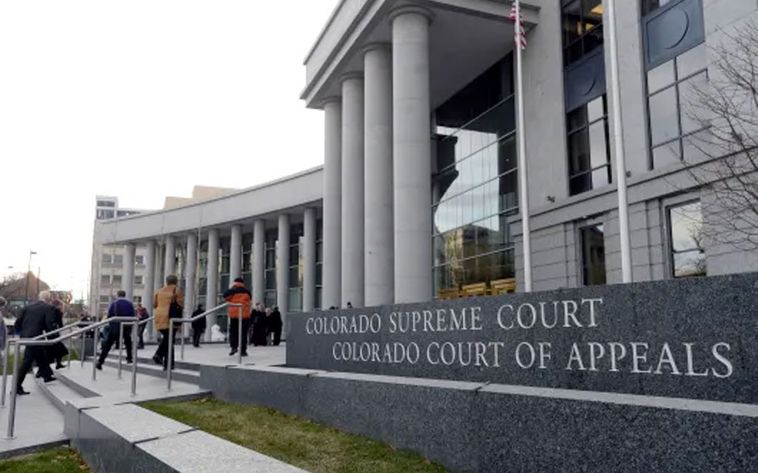Colorado Service of Process Rules


Colorado has several service of process rules. These are all included under the primary Colorado Rules of Civil Procedure, CRCP, Chapter 1. However, county courts (Chapter 25), probate courts (Chapter 27) and juvenile courts (Chapter 28) have their own procedures. In cases of conflict in the probate and juvenile courts, those courts’ rules control.
Lawyers, paralegals, and legal professionals should be sure when filing in any Colorado court that they are following the rules for that court. The differences between state and county court filings are not significant, but the differences between state and probate are considerable. Improper service of process can lead to a case being dismissed, or at a minimum costly delays in the proceeding.
Where to Find Colorado Service of Process Rules
Colorado service of process rules are not unusually complex, but they have been placed in multiple locations. As a result, lawyers and paralegals can be misled by all the copies of the rules online. The most readily accessible copy can be found on Casetext at Colorado Rules of Civil Procedure. Law firms in Colorado should have their own copy along with local court rules and filing requirements of the judges in their courthouses.
The CRCP can be purchased through Amazon and other websites, and is accessible through Lexis and other legal websites. Legal professionals should be careful that they are pulling up the most recent version of the CRCP. For instance, the first version of the CRCP that appears in a Google search from the state of Colorado is dated 2018. Always double-check the date of any statute or court rule you find online.
Methods of Service
The plaintiff, that is, the person initiating the legal action, is responsible for delivering the summons and complaint to the named defendant(s) in the suit. Colorado rules allow several methods of service. Who receives service depends on the type of defendant. Service on individuals is different from service on companies or governments.
Colorado courts require service of every document, court order, and other paper on all parties in a case. The only exceptions are when the court orders otherwise, when the rules do not require it, or when a party is in default.
Personal Service
Personal service is done by having someone hand-deliver the summons and complaint to the defendant. CRCP 5(b) allows service to be made by handing it to the defendant. It isn’t quite that easy, however. The person delivering the summons and complaint must be over the age of 18, and not a party to the action. They also need to know how to file a notice of service afterward, and be able to testify in court that they followed all the rules. It may be best to use a professional process server who knows how to deliver the documents, the correct things to say, and the proper things to file after service is complete.
Unless the court orders personal service on the defendant, if the person being served already has an attorney, then service is made to the defendant’s attorney. If the person has an out-of-state attorney, a resident attorney must be designated to receive service of process.
If process is served on a person under the age of 18, service is made to their parent or guardian. If the person has a legal guardian or conservator, then service must be made to that individual.
Substituted Service
Sometimes, personal service is not possible. The defendant may know a lawsuit is coming and take steps to avoid the process server. The defendant’s work hours may just keep them from encountering the process server. For whatever reason, the server cannot make personal contact with the defendant. In that case, the plaintiff can make a motion (a request to the court) for substituted service (Rule 4(f). This allows the process server to leave the summons at the defendant’s regular place of business with a clerk or other person in charge, or at their place of residence with any other resident over the age of 18.
If substituted service is allowed, a copy of the summons and complaint must also be mailed to the defendant at their last known address. Substituted service does not require certified or registered mail, but many attorneys recommend it so the plaintiff has a record of the mailing.
Multiple Defendants
If a case has multiple defendants, such as a suit against a corporation or a trust, then the CRCP does not require serving every single member of the company. Instead, the company’s registered agent should receive the summons and complaint. If the defendants do not have an agent, then the process can be delivered by hand or by substitute service to an officer or partner, or to any office manager or secretary, as described above.
Legal action against government entities is complicated and may require serving the attorney general, county counsel, or city clerk.
Other Methods of Service
Unlike some states, Colorado does not allow “nail-and-mail” service. That is, the process server cannot just leave the papers at the door and then mail a copy to the defendant. If a summons is left, it must be left with someone at the residence. Colorado has some specific requirements for service of process for evictions (Rule 304(b)(2)). Not only the summons and complaint, but other documents relating to evictions must be included in the service packet.
Electronic service is permitted if both parties have agreed to E-service in writing (Rule 5(b)(2)(D)). If the delivery does not go through for whatever reason, service has not been completed. As with other types of service, the plaintiff must ensure that the document was received by the defendant before service is complete.
If all other methods have been unavailing, the plaintiff can make a motion to the court for two other methods of service:
Service by mail. The court can order that service be made by certified or registered mail, to the defendant’s last known address. Proof of service will be the date of mailing the letter, and the signed return receipt.
Service by publication. When all else fails, publication of process can be made in a newspaper published in the county where the action is pending. The notice must run once a week for five successive weeks. Service is complete the date of the last publication. Service by publication is most common in probate cases, but also divorce and other family law cases where the defendant is no longer in the state.
Colorado Proof Of Service
Once service of process is made, the person making it must file proof of service. Professional process servers have an affidavit of proof of service ready to complete and file with each document they serve. A proof of service may be sworn or unsworn, but must state the papers serve, the name of the individual served, the date, time, and address of service, and facts showing the process server was authorized to do so.
Service of process must be made within 63 days (nine weeks) of the date of filing the complaint. If service is not made within that time, the court can dismiss the case on its own motion, or the plaintiff can move to dismiss the case.